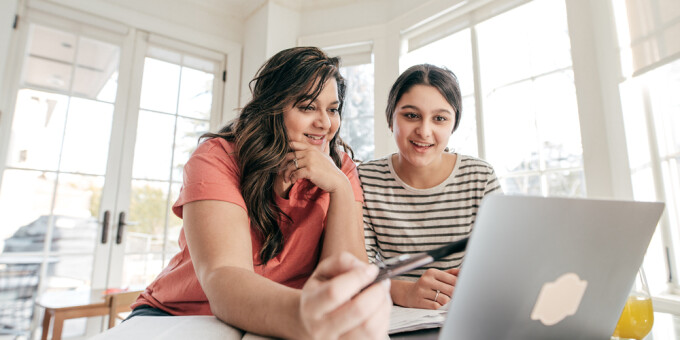Does anyone else leap up when the postie rings the doorbell? The extent to which I cherish those waves and smiles with ours is a sure sign that I am missing other day to day interactions – at the school gate, with colleagues, friends at the park and pub.
Socialising is vital to our wellbeing, for all ages but particularly for young people. Research by Sarah-Jayne Blakemore, a Professor of Psychology at the University of Cambridge, states that people aged 10 to 24 are particularly influenced by others their own age.
A key finding of the Education Endowment Foundation’s assessment of the evidence around remote learning is that peer interactions increase motivation and learning outcomes. So how can we support our learners to maintain nourishing connections while they can’t see many of their friends in person, face to face?
Free tools to help develop good relationships
Following my recent blog on how person-centred planning tools can be used to help learners develop a more positive identity, we are sharing another two free tools (see below) to support young people as they work to develop and sustain relationships over lockdown and beyond.
These tools come from My Independence, ASDAN’s new preparing for adulthood programme, aimed at learners with SEND (special educational needs and disabilities).
These person-centred planning tools could be used together, with learners of any age, in conversation around which relationships matter the most. This will give learners the opportunity to explore how these relationships could be strengthened, even in these difficult circumstances, to support learning and wellbeing.
The Relationship circle resource helps to clarify who is important in the young person’s life.
- Start with the young person in the centre and work outwards
- The inner circle contains the people closest to the young person
- The second circle contains people that the young person likes
- The outer circle contains people who offer support, and are significant in the young person’s life
Making our daily life more rewarding and enriching
Sustaining good relationships with others has a huge impact on the quality of our day.
Our Good day, bad day resource is a simple but effective worksheet, helping identify what a good day and a bad day looks like for the young person.
How can even lockdown days be good days?
- Ask the young person to think back to the last bad day they had – what happened and why was it bad?
- What support could have made it better?
- Ask the young person to describe a good day – what happened and why was it good?
- Were there specific routines?
- Who helped to make the day good and what did they do?
- Make a plan to work towards having more good days than bad days
We hope these tools are helpful for reflecting on how to manage lockdown life – please let us know what you think by emailing marketing@asdan.org.uk or tagging us in any of your tweets using @ASDANeducation
Visit our My Independence page to find out more about ASDAN's new SEND programme and download free sample copies.
